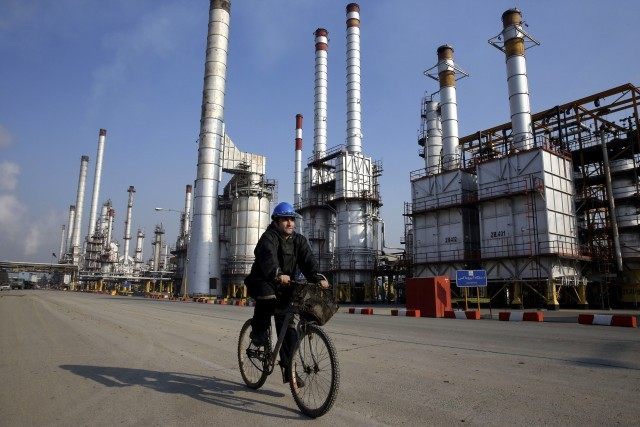Russia signed a $10 billion deal to build Jordan’s first nuclear power plant. It is the third nuclear deal for Russia and the second within that region.
Jordan signed the deal in the capital of Amman with Sergei Kiriyenko, the head of Russia’s state-owned Rosatom. The power plant will consist of “two 1,000 mega-watt reactors,” which will help Jordan achieve self-reliance on energy. The country “imports 96 percent of its electricity,” and violence in the Middle East threatens their power.
“As you know, we lost the oil from Iraq, natural gas from Egypt, and the country has been bleeding and losing on an average $3 billion every year,” explained Khalid Toukan, the head of the Jordanian Atomic Energy Commission. “We aim to build a state-of-the art nuclear power plant that will be a showcase for the region and other newcomer countries. Nuclear power is definitely one of the solutions to graduate from total dependency on oil and gas. I am optimistic that the raw materials, the yellow cake, will come from Jordan.”
The AFP reports Moscow will finance 49 percent of the job and hope to complete it by 2023. Jordan agreed to “buy fuel from Rosatom for the reactors for 10 years.” After the time is up the country can buy fuel from other suppliers.
“The power plant is the embodiment of a real strategic partnership,” announced Kiriyenko.
Experts believe the deal will rattle NATO. Tensions between the West and Russia continue to be at Cold War levels due to Russian aggression in Ukraine. The West has repeatedly implemented new sanctions, but nothing has persuaded Russia to stop pushing its geographical limits. Jordan is not a member of NATO, but the organization considers it an ally.
“NATO should not be happy about this deal,” claimed Oscar Jonsson, a PhD candidate at the Department of War Studies at King’s College London. “This is a sticks and carrot situation. When needed, Russia can slow the construction, threaten to interrupt building, and get personnel for intelligence in Jordan.”
Richard Giragosian, the director of the Regional Studies Center (RSC), said Russia wants a “nuclear sphere of influence” and the Jordan deal “could prompt other countries to join” the sphere.
“I’d see this as a potential move to counteract Jordan’s relationship with the west,” continued Jonsson. “If it’s the case that Jordan is getting a sweet deal then that is significant.”
Russia reportedly signed a similar deal with European Union and NATO member Hungary last year. The deal said Hungary must purchase fuel from Rosatom for ten years. On Wednesday, Hungarian spokesman Zoltan Kovacs claimed the government “reached a compromise with EU nuclear body Euratom over plans for Russia to be the sole supplier of nuclear fuel to the country’s Paks power plant.”
In February, Putin agreed to help Egypt build its first nuclear power plant. He even promised to supply staff and scientists. Rosatom will also be in charge of building two new reactors. The contract includes “a total of four units of 1200 MW each.”

COMMENTS
Please let us know if you're having issues with commenting.